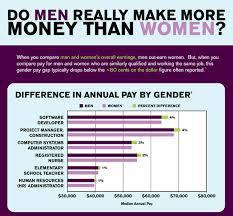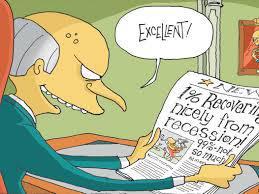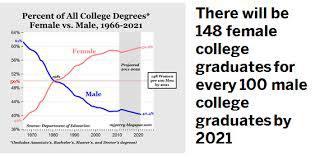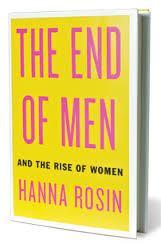 American women earn only 78% of what men do. We’ve all heard this cause celebre. It’s utterly bogus. Women’s pay averages less than men’s because they do different jobs. But for comparable jobs, women who work as long as men earn virtually the same. And women tend to have different careers not because of discrimination but mainly because they’re different from men, with different temperaments, proclivities, talents, and goals. (If businesses really could hire equally qualified women cheaper than men, why would they employ any men?)
American women earn only 78% of what men do. We’ve all heard this cause celebre. It’s utterly bogus. Women’s pay averages less than men’s because they do different jobs. But for comparable jobs, women who work as long as men earn virtually the same. And women tend to have different careers not because of discrimination but mainly because they’re different from men, with different temperaments, proclivities, talents, and goals. (If businesses really could hire equally qualified women cheaper than men, why would they employ any men?)
Meantime, all the nonsense about underpaid women misses something very important happening to men: their elimination from working class families.

This story is complex. The pill, and entering the workforce, freed women from a lot of social and economic constraints toward getting and staying married. Unwed motherhood lost its stigma. Divorce got easier. And, while among the educated affluent, men remained attractive marriage partners, working class men did not. Indeed, lower income women can lose government benefits if they marry.


Further, whereas educated affluent males have gotten with the program of gender equality, helping with housework and child care, typical blue collar guys haven’t received this memo.

So it becomes a vicious circle in which mothers without husbands raise sons to predictably repeat the syndrome: no education, no job, no wife, no family, no nothin’. A much bigger societal problem than that phony 78% pay gap.
What can be done? The Economist suggests making school more boy-friendly. Certainly it’s criminal how many don’t even finish high school. For those, all other public policy ideas are probably futile. I’ve noted, too, how kids can be educated to pass the marshmallow test – imbuing a personality trait shown to be critical for life success. And, of course, we could at least correct the daft welfare and tax policies that, to this day, still penalize marriage.
But in the long run, men are probably doomed, with science enabling women to procreate without them.

** A recent news story reported data showing marriage raises incomes, with married men earning much more than bachelors. Surely this has causation backwards: higher earning men are the more likely to be married.
